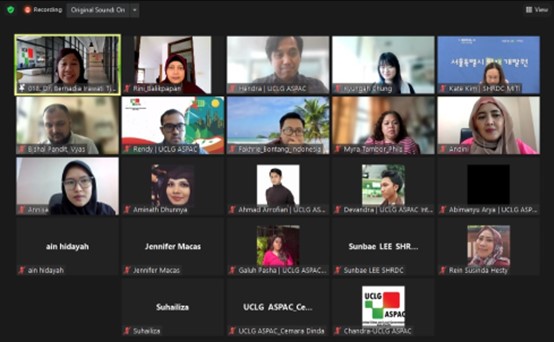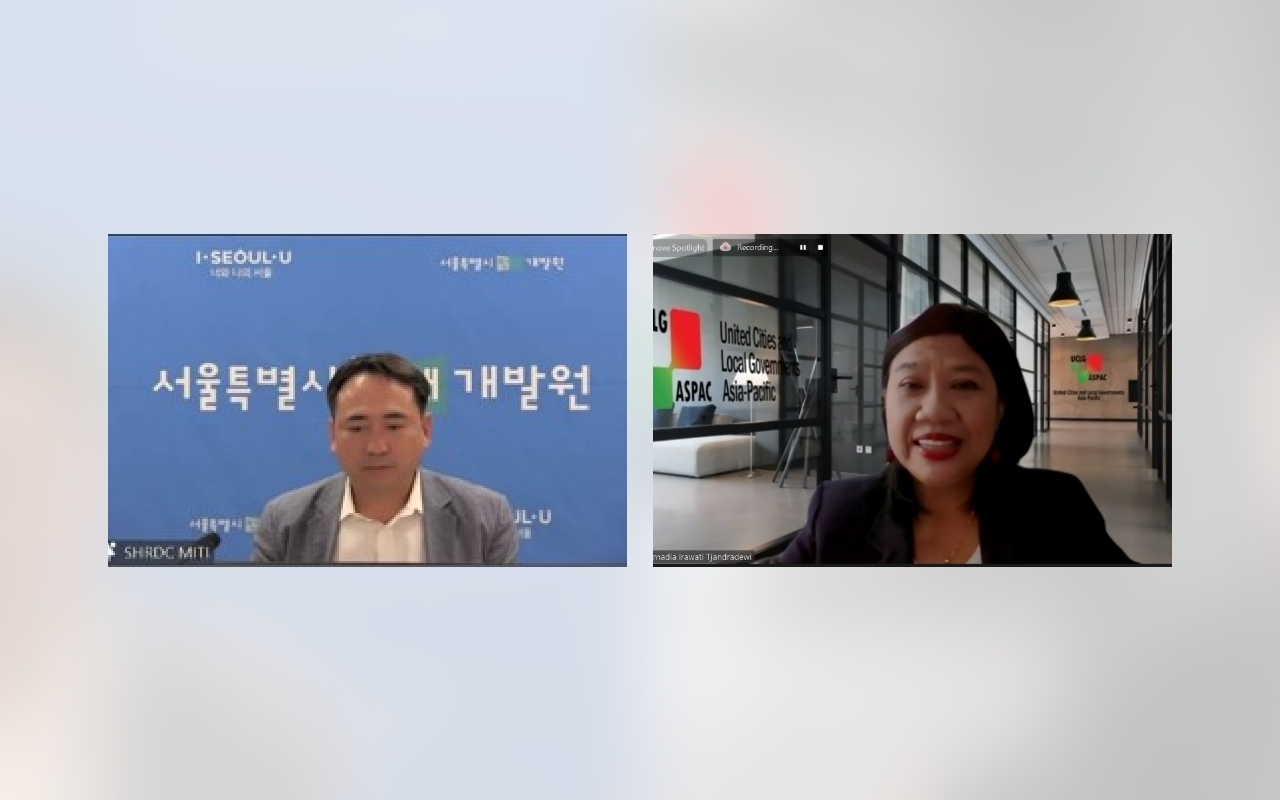17-21 July 2022 | UCLG ASPAC joined forces with Seoul Human Resources Development Centre (SHRDC) in organising an online training for cities and local governments in the Asia-Pacific region entitled “Improving Public Transportation System as a Means to Achieve Sustainable Human Mobility towards the Resilient City.” The training was aimed at enhancing the local governments’ knowledge and capacity in improving the transportation system and promoting sustainable mobility among UCLG ASPAC members.
The training invited speakers from the University of Seoul, the Planning and Development Agency of Jakarta Capital City, Guangzhou Municipal People’s Government, the Asian Development Bank (ADB), the Indonesian Association of Planners (IAP), and Bina Nusantara University. It was attended by city and local government officials from UCLG ASPAC members from Malaysia, Maldives, Nepal, Indonesia, Pakistan, and the Philippines.
The acting President of SHRDC, Mr. Wan-suk Cho thanked UCLG ASPAC for his great collaboration in organising the training and warmly welcomed all participants. Secretary General of UCLG ASPAC, Dr. Bernadia Irawati Tjandradewi highlighted the importance of the training that would provide the participants with myriad information and knowledge about urban mobility and transportation sustainability. She also emphasised a visionary approach grounded on urban transportation and sustainable mobility from a realist perspective to explore plausible visions for the future.
Professor Shin Lee, a transportation expert from Seoul University, began the session and highlighted the sustainable mobility definition as a concept that allows the basic access needs of individuals and societies to be met safely and in a manner consistent with human and ecosystem health, and with equity within and between generations. The sustainable mobility principle covers road safety, environment quality (global and local), and social and generational equity.
Dr. Andy Simarmata, a transportation expert from the Indonesian Association of Urban and Regional Planners (IAP) concluded on the last day that it is essential for a city to encourage active transportation, meaning putting public transportation in the first place instead of privately owned cars. Further, he also said that the new direction for transportation infrastructures should enable social interaction, encourage people-oriented development, climate-proofing and resilient infrastructures, and identify the symbol of modernisation. The training also included a role play on urban mobility to ensure the lessons learned could further leverage knowledge transformation for local government officials. The participants also discussed action planning to create sustainable urban mobility in their respective cities.












